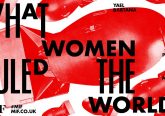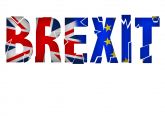
As was said in the opening paragraph of this series, a well-rehearsed interpretation of UKIP is that they are a grouping to the right of the current Conservative party, dissatisfied with the old party’s failure to stand up to Europe and its perceived leftwards shift under Cameron. In this view, UKIP are, to quote a recent Labour party campaign, “more Tory than the Tories”. There is certainly something to be said for this claim. Leading figures in the party, as well as party activists, are former members of the Conservative party, not least Nigel Farage himself. While we await their 2015 election manifesto, a number of policies that have been proposed recently also seem to point in the direction of an ultra-Tory agenda, such as plans to abolish inheritance tax. But UKIP’s own constitution brands it as a “democratic, libertarian party”, while its most famous recent acquisition, Douglas Carswell, describes himself on his own twitter account as a “free trade Gladstonian liberal”. What are we to make then of UKIP’s ideology and identity?
Firstly, it is only right to point out that UKIP, like almost all political parties, represents a coalition of different views. In particular, it displays a similar kind of mix of conservatism, liberalism and libertarianism that we find in the Conservative party. It is probably fair to say that libertarianism is a term less familiar to British political culture than to that of the United States, but British conservatives (including members of the Conservative party) often like to claim the mantle of liberalism and individual liberty, usually relating these ideas to the promotion of free enterprise, reduced state intervention in the economy and individual responsibility. That Mrs. Thatcher was an ardent admirer of Gladstone is no secret, and Simon Heffer has gone as far as to argue that she is best understood as a latter-day champion of Gladstonian liberalism, rejecting many of the values that had come to be associated with Toryism in the nineteenth and twentieth centuries, such as paternalism and protectionism. It is worth noting that Gladstone himself began life as a Tory.
But once again, it might be argued that this merely attempts to reduce modern conservatism—encompassing UKIP—to free-market liberalism, when in fact it can be clearly distinguished from liberalism in other crucial respects. First of all, patriotism and nationhood are clearly central to both the contemporary Tory party and to UKIP. While both express outward-looking views on free trade, they also wrap themselves unashamedly in the flag and bang the drum for British values and virtues wherever possible. On the issue of mass immigration, while the Tory party are more divided, UKIP are, of course, vociferously opposed, pointing to the need to withdraw from the EU as the only way to guarantee full control over migrant entry into the country. Compare this to the liberal internationalism of Nick Clegg, an economic liberal in key respects, but alone amongst the three main party leaders in his outspoken support for the EU. Other UKIP policies are also suggestive of an ultra-conservative agenda rather than a liberal one, including the promotion of grammar schools and tougher sentences for prisoners. Then there are those amongst the party’s rank-and-file who occasionally crop up to embarrass the leadership, like councillor David Silvester, who, earlier this year, claimed that recent flooding had been the result of the government’s legalisation of gay marriage. While there is no suggestion that this particular view is widespread within the party, it nonetheless hints at an undercurrent of extreme, evangelical social conservatism that feels quite alien in secular Britain, but is perhaps not quite as distant as we like to think.
Admittedly, even in the face of their stances on social and cultural matters, some have tried to defend UKIP’s liberal credentials. In an article for The Telegraph, commentator Ed West has argued, against the views of Spectator blogger Alex Massie, that UKIP’s critique of phenomena like multiculturalism and political correctness is entirely compatible with a liberal or libertarian outlook. According to West, the former is the result of heavy-handed state policy which gives undue sway to particular groups in society over individuals, while the latter, at its worst, represents a form of “political straightjacketing”. The debate will, undoubtedly, rage on.
But while we might expect the messy dialogue between conservatism and liberalism to go on in UKIP, just as it does in the Conservative party itself, the presence of other strands of thinking might seem more incongruous. A so-called ‘Red UKIP’ tendency has been identified within the party that draws attention to issues like inequality and has spoken out, for example, against the party’s plans to abolish inheritance tax. While no one is arguing that this is a major force within the party, it does serve as further evidence that the party cannot be easily squeezed into a single mould. It also shows how the party is very much in the business of trying to poach Labour voters as well as disgruntled Tories. UKIP’s own economic spokesman, Patrick O’Flynn, recently suggested the introduction of a modern-day sumptuary law, proposing a higher rate of VAT for luxury items, although he was quickly slapped down by Farage. Indeed, it is important to remember that UKIP began life as the baby of left-wing academic Alan Sked, who subsequently quit the party, claiming that it was being taken over by right-wingers and racists. In recent years, Sked has founded a new, left-of-centre anti-EU party called New Deal, to rival Labour. Within the Labour party itself, a notable strain of Euro-scepticism has persisted since the 1970s, most memorably personified in the figure of Tony Benn, who saw the Union as a capitalist club that stood in the way of building democratic socialism in Britain.
The Telegraph’s Stephen Bush has suggested that there are in fact “two UKIPS”: one, libertarian and right-wing, the other, working-class and anti-immigrant. Nigel Farage, he feels, straddles these two sides quite effectively, while UKIP’s new MP Douglas Carswell sits more firmly in the former camp (although it must be said that he seems to be very popular with many of his working class constituents). This is not entirely unproblematic of course—many of the libertarians within the party are also highly critical of mass immigration (not least Carswell himself)—but it is an interesting distinction that seems to capture something about the peculiar nature of the party. What is less clear, perhaps, is where conservatism sits in this schema. On the one hand, we might think it closer to the libertarian side, sharing a commitment to the free market and individual liberty. On the other, we might consider it more at home with the working-class anti-immigrant grouping, suspicious of the changes to traditional ways of life that globalisation has wrought. As we will see in the next section, it is this latter sentiment that some in the Labour party have woken up to, leading conservatism to find some seemingly unlikely champions on the left.
This post is one of a three-part series on British conservatism. For the next two posts, see here.







No Comment